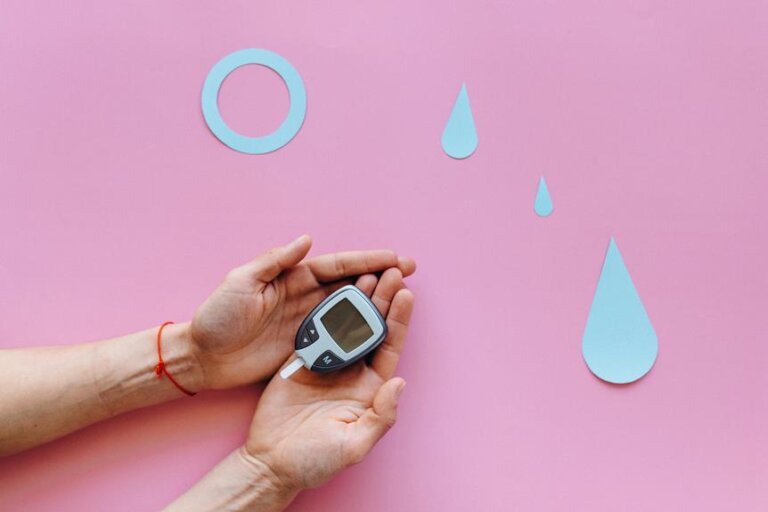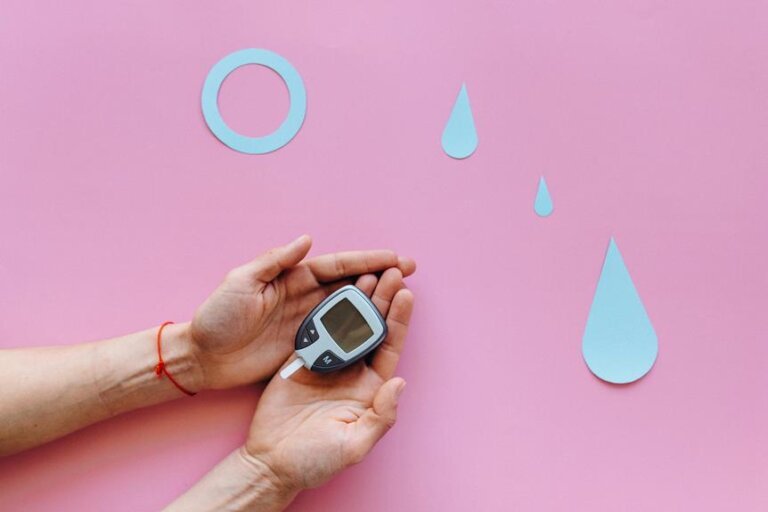Diabetes Doesn't Discriminate: The Skinny Epidemic
Did you know that nearly 15% of people diagnosed with diabetes are considered to be of normal weight?
It may surprise you that diabetes doesn't discriminate based on body size.
The Skinny Epidemic sheds light on a lesser-known aspect of this prevalent health issue.
The Skinny Epidemic Unveiled
Unveiling the skinny epidemic reveals a startling truth about the prevalence of diabetes among individuals with lower body weights. Despite the common misconception that only overweight individuals are at risk for diabetes, research shows that even people with a skinny build can develop this condition. The connection between being thin and having diabetes isn't well understood by many, but it's a reality that needs to be acknowledged.
When you look at the data, it becomes evident that being thin doesn't automatically equate to being healthy or free from chronic illnesses like diabetes. Factors such as genetics, lifestyle choices, and metabolic health play a significant role in determining an individual's susceptibility to diabetes, regardless of their weight. It's crucial for everyone, regardless of their body size, to be aware of the risk factors and symptoms of diabetes to ensure early detection and proper management of the condition.
Misconceptions About Thin Diabetics
You might think that being thin automatically means you're healthy, but that's not always the case. Genetics can predispose even slim individuals to diabetes.
Making healthy lifestyle choices, regardless of your weight, is crucial in preventing and managing diabetes.
Thin Doesn't Mean Healthy
Misconceptions abound about thin individuals with diabetes that often lead to the assumption that they're inherently healthier. People mistakenly believe that being thin automatically equates to good health, but this isn't always the case.
Thin diabetics can still struggle with high blood sugar levels, insulin resistance, and other complications associated with diabetes. Just because someone isn't visibly overweight doesn't mean they're immune to the effects of the disease.
It's crucial to remember that diabetes can affect individuals of all shapes and sizes, and maintaining a healthy lifestyle is essential for everyone, regardless of their weight. So, don't let appearances deceive you when it comes to assessing someone's health status.
Genetics Play a Role
Genetics also play a significant role in the development of diabetes among thin individuals, challenging the common misconception that weight alone determines one's risk for the disease.
While it's true that obesity is a known risk factor for diabetes, it's essential to recognize that genetics can predispose even seemingly healthy, thin individuals to the condition.
Certain genetic variations can affect insulin production, glucose metabolism, and overall susceptibility to diabetes. This means that even if you maintain a slender physique, your genetic makeup could still influence your likelihood of developing diabetes.
Understanding the genetic component of diabetes among thin individuals highlights the complexity of the disease and emphasizes the importance of personalized healthcare approaches that consider both genetic and lifestyle factors.
Lifestyle Choices Matter
Thin individuals with diabetes often face misconceptions about the role of lifestyle choices in managing their condition. People may assume that because you're thin, you don't need to watch what you eat or exercise regularly. However, managing diabetes isn't just about weight; it's about making healthy choices every day.
Your lifestyle plays a crucial role in keeping your blood sugar levels in check and reducing the risk of complications. By eating a balanced diet, staying active, and monitoring your blood sugar levels consistently, you can take control of your health.
Genetic Predisposition to Diabetes
You mightn't realize it, but your genes play a crucial role in determining your risk of developing diabetes.
Your genetic makeup can influence how your body processes sugar and insulin, making you more susceptible to diabetes.
Additionally, having a family history of diabetes can significantly increase your chances of developing the condition due to shared genetic risk factors.
Genetic Risk Factors
Understanding your family history can provide valuable insights into your predisposition to diabetes. Genetic risk factors play a significant role in determining your likelihood of developing diabetes.
Certain genes can increase your susceptibility to the disease, making it essential to be aware of any hereditary predispositions. If you have close relatives with diabetes, especially parents or siblings, your risk may be higher due to shared genetic factors.
Research suggests that inheriting specific genetic variants can influence your body's ability to regulate blood sugar levels effectively. While genetics alone don't guarantee diabetes, they can contribute to your overall risk profile.
Family History Impact
Having a family history of diabetes can significantly increase your genetic predisposition to the disease. If your parents, siblings, or close relatives have diabetes, you're at a higher risk of developing it yourself. Genetics play a crucial role in determining your susceptibility to diabetes, and inheriting certain genetic markers can make you more prone to the condition.
It's essential to be aware of your family history and discuss it with your healthcare provider. Understanding your genetic predisposition can help you take proactive steps to prevent or manage diabetes. While family history is just one factor in the development of diabetes, it's an important one that shouldn't be overlooked.
Take control of your health by staying informed and proactive.
Inherited Diabetes Susceptibility
Genetic predisposition to diabetes can be inherited and significantly influence an individual's likelihood of developing the disease. If your parents or siblings have diabetes, you have a higher risk of developing it yourself due to shared genetic factors.
Specific genes linked to diabetes can affect how your body processes glucose, making you more susceptible to high blood sugar levels. Understanding your genetic predisposition can help you take proactive steps to prevent or manage diabetes.
Regular check-ups, maintaining a healthy weight, and staying active are crucial in mitigating the risk. By being aware of your inherited susceptibility to diabetes, you can make informed lifestyle choices to protect your health and well-being.
Lifestyle Influences on Thin Individuals
In today's fast-paced society, even thin individuals can be influenced by their lifestyle choices when it comes to managing their health. Despite being naturally slender, your daily habits play a crucial role in your overall well-being. Maintaining a balanced diet is essential for everyone, including those who may not struggle with weight issues. Opting for nutritious foods over processed ones can help regulate blood sugar levels and reduce the risk of developing diabetes.
Regular physical activity is another key factor in staying healthy. Engaging in exercises that you enjoy not only helps in managing weight but also improves insulin sensitivity, lowering the chances of insulin resistance. Incorporating simple activities like walking, cycling, or yoga into your routine can make a significant difference in your health outcomes.
Moreover, managing stress levels is vital for thin individuals as well. Chronic stress can elevate blood sugar levels, increasing the likelihood of diabetes. Finding healthy ways to cope with stress, such as meditation, deep breathing exercises, or spending time in nature, can positively impact your overall health. Remember, even as a thin individual, your lifestyle choices significantly influence your well-being and diabetes risk.
Stress and Its Impact on Diabetes Risk
Chronic stress can significantly elevate blood sugar levels, increasing the risk of developing diabetes even in individuals who are naturally thin. When you experience stress, your body releases hormones like cortisol and adrenaline, which can cause your blood sugar to rise. Over time, this continuous elevation of blood sugar levels can lead to insulin resistance, a key factor in developing type 2 diabetes.
Moreover, stress can also impact your behaviors and habits, such as eating unhealthy foods, skipping exercise, or neglecting self-care routines. These lifestyle changes further contribute to an increased risk of diabetes, regardless of your weight. It's essential to recognize the link between stress and diabetes risk and take proactive steps to manage stress effectively.
To reduce your risk of developing diabetes, prioritize stress management techniques like mindfulness, exercise, adequate sleep, and seeking support from friends, family, or a professional. By addressing stress levels and adopting healthy coping mechanisms, you can help safeguard your health and well-being.
Importance of Early Detection
Managing stress is crucial for reducing diabetes risk, but equally important is recognizing the significance of early detection in preventing complications associated with the condition. Early detection plays a pivotal role in managing diabetes effectively, especially in individuals with a slender build. Due to the misconception that only overweight individuals develop diabetes, thin individuals may overlook symptoms or delay seeking medical advice. However, diabetes doesn't discriminate based on body size, and early detection is key to maintaining optimal health.
Regular health screenings, including blood glucose tests, are essential for catching diabetes in its early stages. If you experience symptoms like increased thirst, frequent urination, unexplained weight loss, or fatigue, it's crucial to consult a healthcare provider promptly. Early diagnosis allows for timely intervention through lifestyle modifications, dietary changes, and possibly medication if needed. By being proactive about your health and seeking early detection, you can effectively manage diabetes and reduce the risk of complications in the long run.
Managing Diabetes in Thin Bodies
Consider lifestyle adjustments and dietary modifications to effectively manage diabetes in slender individuals. Since weight management may not be the primary focus for thin individuals with diabetes, it's crucial to tailor treatment plans to their specific needs.
Monitoring blood sugar levels regularly is essential, even if you aren't overweight. Engage in regular physical activity to help regulate blood sugar levels and improve insulin sensitivity.
Consult with a healthcare provider or dietitian to create a balanced meal plan that suits your body type and metabolism. Incorporating complex carbohydrates, lean proteins, and healthy fats can help maintain stable blood sugar levels throughout the day.
Be mindful of portion sizes and meal timings to prevent drastic spikes or drops in blood sugar. Remember that managing diabetes is a lifelong commitment, regardless of your body size.
Stay proactive in your health journey and seek support from healthcare professionals to navigate the challenges of diabetes management in a slender body.
Empowering Thin Diabetics Through Support
To effectively support thin individuals managing diabetes, seek out community resources and connect with others who understand the unique challenges you may face. Living with diabetes can feel isolating, especially when you don't fit the common stereotype of being overweight. However, there are support groups, online forums, and local organizations that cater specifically to individuals like you. These platforms provide a safe space to share experiences, ask questions, and learn from others in similar situations.
Engaging with these communities can offer valuable insights, tips, and emotional support that are crucial for managing diabetes effectively. By connecting with others facing similar struggles, you can gain a sense of empowerment and motivation to navigate your diabetes journey with confidence. Remember, you aren't alone in this fight, and there are people out there who understand the challenges you're going through.
Take the first step today by reaching out to these resources and building a support network that can help you thrive despite the unique circumstances of being a thin diabetic.
Frequently Asked Questions
How Does Stress Specifically Impact Diabetes Risk in Thin Individuals?
When you're thin, stress affects diabetes risk by triggering hormonal changes that can raise blood sugar levels. Cortisol, the stress hormone, can disrupt insulin production and usage in your body, potentially increasing diabetes risk.
Are There Any Specific Lifestyle Factors That Thin Individuals Should Be Aware of to Prevent Diabetes?
Are there any specific lifestyle factors thin individuals should be aware of to prevent diabetes? Yes, maintaining a balanced diet, regular exercise, managing stress, and getting enough sleep are crucial. Your choices today shape your health tomorrow.
Can Genetic Predisposition to Diabetes Be More Harmful for Thin Individuals Compared to Those Who Are Overweight?
Genetic predisposition to diabetes can pose unique risks for thin individuals. Despite weight, monitoring blood sugar levels, maintaining a balanced diet, and staying active are crucial. Regular check-ups and lifestyle adjustments can help prevent complications.
How Can Early Detection Benefit Thin Individuals With Diabetes?
Early detection can greatly benefit you as a thin individual with diabetes. By catching the condition early, you can start managing it effectively, reducing the risk of complications and improving your overall quality of life.
What Kind of Support Systems Are Most Beneficial for Empowering Thin Diabetics to Manage Their Condition Effectively?
To manage diabetes effectively, thin individuals benefit from support systems that include peer groups, diabetes education programs, dietary guidance, and regular medical check-ups. These resources empower you to stay informed, make healthy choices, and monitor your condition.
Conclusion
You may think only overweight individuals get diabetes, but the truth is, diabetes doesn't discriminate based on size.
In fact, did you know that 20% of individuals diagnosed with diabetes are actually considered to be at a healthy weight?
Imagine a room full of people, one in every five of them could be dealing with diabetes despite looking thin.
It's important to remember that anyone can be affected by this disease, regardless of their size.




